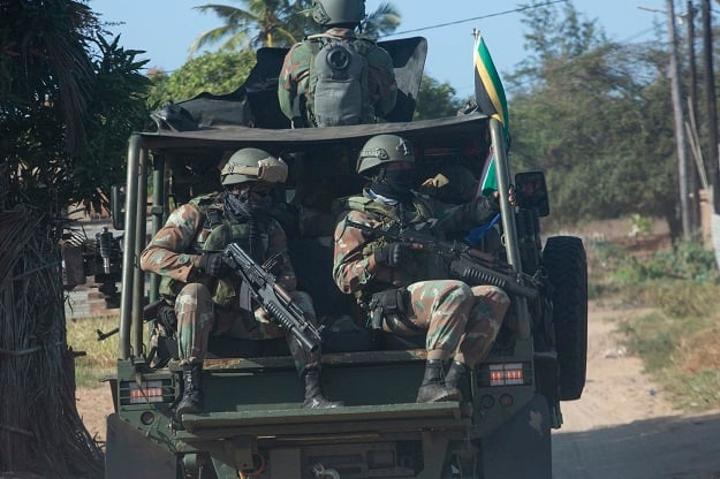Africa-Press – South-Africa. Addressing violent extremism that emerges from governance failures, as is often the case in Africa, requires a rebuilding of trust between citizen and state, and the active participation of communities in developing a new social contract, argues Amanda Lucey.
In the Western world, terrorists are often portrayed as ‘lone wolves’ – extremist individuals acting upon their radicalised beliefs that are inspired by, but are not formally linked to, certain terrorist organisations. The underlying assumption is that these people suffer from mental illness and broken social ties who latch onto political grievances with which they identify.
Yet the phenomenon of Violent Extremism (VE) in Africa suggests a different reality for the continent – one in which systemic state failure, marginalisation and discrimination, and limited economic opportunity propels large swathes of disillusioned youths to seek alternatives to the status quo.
This requires a shift in policy thinking, from a greater emphasis on the individual towards the collective and structural conditions that give rise to violence, and an understanding that radicalisation may emerge from the absence of alternatives in which to engage the State.
Terrorism deaths
According to the Global Terrorism Index, sub-Saharan Africa is now witness to 48% of global terrorism deaths. Increasingly, these take place in countries in which there is armed conflict, weak governance, and limited resources to provide basic services. In areas like the Sahel, these challenges have become even more pronounced by the effects of climate change, prompting irregular migration and rising food security.
Insurgent groups build on these grievances by offering attractive promises of financial reward, an ideology that can channel frustrations, and a means of being heard. With few meaningful options for political participation, violence becomes a way of expressing anger against injustice. However, governance is often a largely overlooked aspect of counter-terrorism operations and efforts to prevent violent extremism.
This raises several important questions. When is political violence considered legitimate? Is violent extremism in Africa a resistance to the way the State is being run, or a broader questioning of the fundamental model of democracy that is applied? Does a focus on security detract from underlying causes of violence by creating a smokescreen of stability? And at what point should States consider engaging with those whose acts we see as morally abhorrent? Extremism, by its very nature, is political – requiring a political response and an understanding of how State actions can actually drive extremism.
Cabo Delgado
Such issues are exemplified in Mozambique’s Cabo Delgado province, where an insurgency led by Al-Sunna wa Jama’a (ASWJ) has resulted in nearly one million displacements since 2017. The group has emerged from a region characterised by poverty, under-development and elite greed, apparently triggered by the expulsion of illegal ruby miners in Montepuez as the government sought to regain control. The discovery of Liquified Natural Gas (LNG) prompted a flurry of multinational corporations and elite-level bargains, which few see as of benefit to the wider population.
One of the most commonly cited drivers behind the conflict relates to the lack of meaningful channels for participation and engagement with the government, leaving the population disillusioned about prospects for change. Peacekeeping troops from Rwanda and the Southern African Development Community (SADC) continue to fight the armed group, which had adopted new tactics and strategies accordingly, such as moving to new areas and operating in smaller groups – while peacekeeping troops promote a mirage of stability in areas that have been regained under state control.
Forthcoming IJR research, supported by Friedrich-Ebert-Stiftung (FES) in Mozambique, argues that the provision of these peacekeeping missions represents a double-edged sword – the more areas are stabilised, the less incentive there is to deal with the drivers of conflict. Thus, providing support to the security sector without genuine attempts to enhancing its legitimacy and accountability will only reinforce what some see as a predatory State apparatus.
Governance failures
Addressing violent extremism that emerges from governance failures (as it often does in Africa) requires a rebuilding of trust between citizen and state, and the active participation of communities in developing a new social contract. This necessitates a balance between backwards-looking attempts to address accountability and forward-looking efforts to promote reconciliation, social cohesion and political and institutional reform.
Transitional justice offers this delicate balance, provided it is adapted to the needs of the population. In this regard, the African Union’s Transitional Justice Policy (AUTJP), adopted in 2019, proposes an essential set of guidelines that governments can consider, not only in situations of armed conflict, but also of extremist violence.
The AUTJP offers a variety of instruments that acknowledge the suffering of those involved, while developing inclusive and sustainable solutions. This includes reparations (financial and non-financial redress), socio-economic justice, memorialisation and traditional African justice mechanisms.
The success of transitional justice strategies, however, is very much dependent on what communities themselves see as fair, just or inclusive, and an understanding of their prerequisites for returning to peace. If done correctly, transitional justice in the context of violent extremism is critical to rebuilding an inclusive State that is acceptable to all of its citizens.
– Amanda Lucey is a senior project leader: Violent Extremism at the Institute for Justice and Reconciliation.
For More News And Analysis About South-Africa Follow Africa-Press






